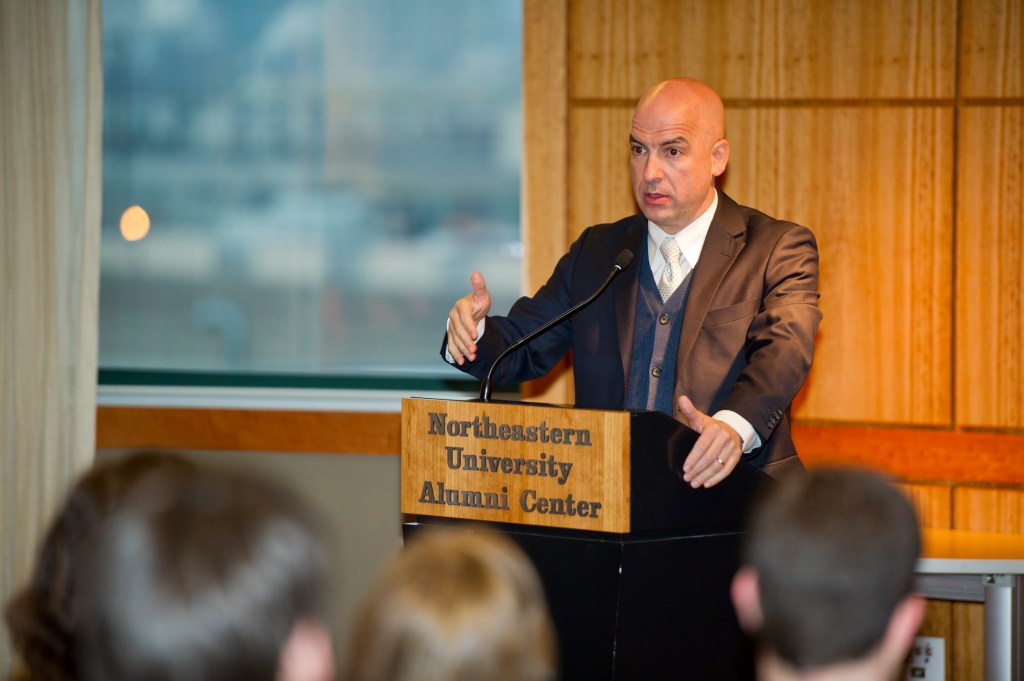Israeli consul general talks press and politics

In the late 1990s, Israeli Prime Minister Benjamin Netanyahu and his former media director Shai Bazak met with then Egyptian President Hosni Mubarak at his palace in Alexandria to discuss the inaccurate portrayal of Jews in the Egyptian media.
Mubarak cited the freedom of the press to disseminate information without the government’s consent but Netanyahu balked at the assertion, telling Bazak that Egyptian journalists had not “written one bad word about its president in the last 25 years.”
Bazak, now consul general of Israel to New England, discussed the media climate in Israel and around the world with a score of Northeastern students, faculty, and staff who packed the Alumni Center’s Faculty Club on Tuesday afternoon. His hourlong lecture, which was co-sponsored by the College of Arts, Media & Design and the Department of Jewish Studies, focused largely on his experience on both sides of the fence: first as a political correspondent for the Israeli news agency ITIM and then as a spokesperson for Netanyahu during the 1990s.
Bazak began his lecture by sharing the core tenet of his professional philosophy, which has been shaped by more than two decades of experience as a reporter and spokesperson. “Politics and journalism will always be connected,” he explained. “The only way political leaders can connect with the people is through the media.”
He developed this crucial insight in the early ’90s, when several Israeli newspapers published his dictated account of the Israel-Jordan Treaty of Peace. “People judged the peace agreement based on my piece,” Bazak explained. “Reporters don’t know everything but are expected to cover everything,” he added.
His tenure as a political journalist has shaped his relationship with reporters, he explained. Of the difference between American and Israeli journalists, he said: “American press are smiling, nice and respectful, but you could be on live TV and the Israeli press could ask you the color of your underpants.”
Bazak also touched on the effect of social media, saying Twitter and Facebook have dulled the impact of news reporting and made it easy for unqualified people to make proclamations without checking the facts. “Now anyone can become a reporter and write what’s on his mind,” he said.
After the lecture, Bazak answered questions posed by students and faculty. One student asked him for advice on handling tough questions from the press.
“You have to be confident and know how to express yourself,” Bazak said. “If you want to say something important, then raise your voice and say it once, twice, three times.”





